Ars Electronica Garden
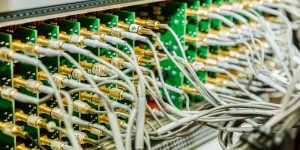
Challenging the limits of AI for the next generation of co-creative tools
IRCAM Institute for Research and Coordination in Acoustics/Music (FR)
The IRCAM garden will display its unique interdisciplinary approach where artistic, scientific and technological visions come together. It will feature six events: “Can we do the same with less - AI in 64 Kb” – a hands-on workshop for the AIxMusic Hackathon by Philippe Esling (FR); the panel “Fronteers of Music and Artificial Intelligence” organized by Elaine Chew (FR), and discussions with Dorien Herremans (BE) and Philippe Esling (FR); the panel “Musical Generatives” – a video-recorded discussion panel In the framework of the "Forum Vertigo" 2020; ”Little Etudes for Piano” – a video-recorded performance by Elaine Chew (FR) of a series of short piano pieces based on cardiac electrical anomalies; “AI Creative Agents: The Man I Love” – avideo featuring the Improtek project interpreted by Hervé Sellin (FR) and Remi Fox (FR); and the performance of a piece by artist Georges Bloch featuring the DYCI2Lib technology at Manifeste 2020.
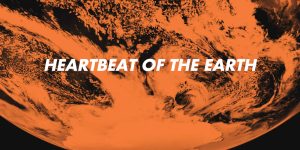
Heartbeat of the Earth
Google Arts & Culture Lab (FR)
On June 5, World Environment Day, Google Arts & Culture Residency Program, together with UNFCCC, launched a series of online artworks inspired by climate data. Collaborating with artists from around the world, this series of online artworks is an artistic response to the topics highlighted in the UN’s IPCC reports, including receding glaciers, food’s CO2 emissions and the acidification of our oceans.

Robots in Action - fast and sensitive!
Institute of Robotics, Johannes Kepler University Linz (AT)
Robots can be strong and sensitive at the same time! They can move extremely fast but also handle fragile objects like champagne glasses. Imagine you want to carry a tray with several glasses of filled liquid without spilling –and you may even be adventurous and try to wave the tray over your head. Most of us will fail to perform such a stunt without breaking some glasses, but our robots are smart and agile enough to do just this. The Institute of Robotics at Johannes Kepler University will open its lab and showcase what modern industrial robotics are, and how fun they can be.
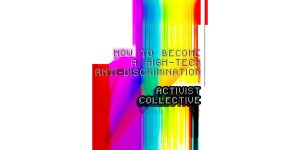
Nushin Isabelle Yazdani und Internet Teapot (Karla Zavala und Adriaan Odendaal): [d/r]econstructing AI - dreams of visionary fiction and zine-making
How to Become a High-Tech-Anti-Discrimination Activist Collective
With this workshop we investigate the structures behind algorithmic decision making systems, discuss why their design is normative, and how AI systems reinforce structural discrimination. We embark on a speculative journey and discuss how to design to create a more just world. Which artists inspire us? Which values are important to us? We want to collect our thoughts and creative outputs in a zine.
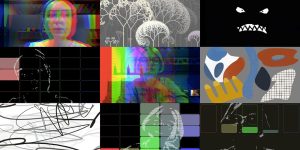
Point Nemo Garden
WRO Art Center (PL)
The event was organized at the Szczytnicki Park close to the plane tree, an example of Wrocław’s long-time signature species.

LAB ON STAGE (Adriana Torres Topaga, Martyna Lorenc and Andrea Maria Handler): Phantom Data in our bodies and imagination
How to Become a High-Tech-Anti-Discrimination Activist Collective
This workshop undertakes a performing arts’ approach. Our departure is the embodiment of imagination and perceptual processes. With somatic exercises and performative games, we notice the data flowing in from our bodies: sensation, image, emotion or memory. Imagination has its own training dataset - therefore a specific priming/bias/imprint. We look for practices of becoming aware of HOW we imagine things and what escapes our field of attention.
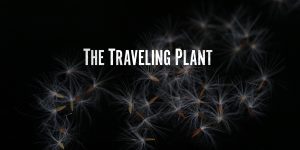
The Traveling Plant Garden
A. Bureaud (FR), T. Kourochkina (ES/RU), M. de Menezes (PT), Claudia Schnugg (AT), R. Šebjanič (SI)
The Traveling Plant project will trace the voyage of a plant – real, artificial or fictive – around the world, as she tells her story and the stories of other plants and creatures (human and non-humans) she encounters. It is the umbrella title for a series of artworks and events held around the world at different places and times, under the direction of local participating organizations and international curators.

Astrid Mager und Hong Phuc Dang: How to create your own AI device with SUSI.AI - An Open Source Platform for Conversational Web
How to Become a High-Tech Anti-Discrimination Activist Collective
The workshop introduces SUSI components like SUSI’s technology stack, its wiki-like skill editor and hardware prototype; participants work together to create a simple bot, develop new skills and test them. A reflection on data bias and algorithmic discrimination invites to collectively think about creating non-discriminatory digital technologies.

Doris Allhutter: “When I encountered discriminating IT-systems and did not want to take it anymore” - deconstructing affective entanglements in society-technology relations
How to Become a High-Tech Anti-Discrimination Activist Collective
This workshop uses the deconstructive method of mind scripting to understand the grip that even technologies that we reject may have on us. Using our own memories as an experimental resource we will explore how discrimination and privilege materialize in our practices. This aims at developing collective agency and activisms.

Safiya Umoja Noble: Algorithms of Oppression - How Search Engines Reinforce Racism
How to Become a High-Tech Anti-Discrimination Activist Collective
The landscape of information is rapidly shifting as new demands are increasing investment in digital technologies. Yet, critical scholars continue to demonstrate how many technologies are shaped by and infused with values that are not impartial, disembodied, or lacking positionality. Technologies hold racial, gender, and class politics. In this talk, Dr. Safiya Noble will discuss her recent book, Algorithms of Oppression, and the impact of technology on the public.

Lisa Nakamura: Estranging Digital Racial Terrorism After COVID
How to Become a High-Tech Anti-Discrimination Activist Collective
This talk argues that COVID-19 forced an accelerated migration to digital networks that exposed new audiences to traumatically racist digital events as well as new openings for critique and resistance.

How to Become a High-Tech Anti-Discrimination Activist Collective
IFG-LIT (AT)
New technologies have penetrated all aspects of our lives and promise a wide range of improvements and efficiencies. Contrary to general perception, though, the algorithms on which these technologies are based are neither neutral nor do they treat everyone equally.
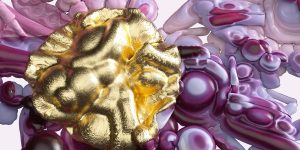
HSE Garden Pavilion
HSE ART AND DESIGN SCHOOL (RU)
HSE Garden Pavilion is a platform that presents a 3D game, sound performance and an animated short film program. It’s dedicated to the issues of modern environments, both online and offline. HSE Garden Pavilion was created by students and curators of the HSE Art and Design School, which is the part of HSE University, one of the leading Russian universities.
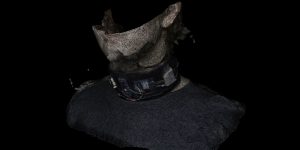
Datasets vs Mindsets
Helena Nikonole (RU), Olga Vad (RU)
or many Post-Soviet countries digitalisation is proclaimed one of the main important national priorities, however, the local context transforms the understanding and implementation of digital tools in its own way. The project aims to present several generations of new media artists from post-Soviet countries. It is dedicated to the artistic exploration of the boundaries between digital and physical spaces and the whole spectrum of phenomena and consequences of the implementations of algorithmic regulation and control tools in the local context.
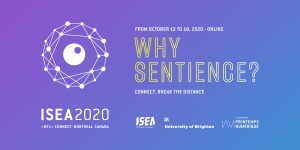
Why Sentience?
ISEA2020 (CA)
ISEA2020 examines the resurgence of sentience — feeling-sensing-making sense — in art and science. We ask: why sentience? Why and how does sentience matter? Why have artists and scholars become interested in sensing and feeling beyond, with, and around our strictly human bodies and selves? Why has this notion been forefronted by an array of disciplines in the 21st century? Our garden at Ars Electronica teases at how the transdisciplinary investigations from participating artists and scientists at ISEA2020 respond to these questions and pose new ones.
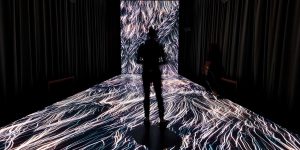
Emergence & Convergence
PHI (CA)
The PHI GARDEN gives a virtual overview of the PHI Centre’s current Emergence & Convergence exhibition in Montreal, an exhibition that investigates our humanity in relationship with our planet and all living beings. It explores a future in which the fusion of nature and technology could become a new ecology.
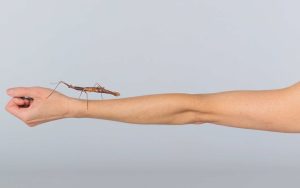
Igniting Creativity and Discovery where Science and Art Collide - Melbourne
Science Gallery Network (Int. - Atlanta/Dublin/Venice/Melbourne/London/Bengaluru/Detroit)
The Science Gallery Garden at the Ars Electronica Festival will explore trust, technology, global challenges, arts innovation and new forms of digital storytelling. A showcase from the world’s only university network dedicated to public engagement with science and art, it will feature interactive workshops, experimental audio and visual experiences, livestreamed events and a specially-curated digital archive.
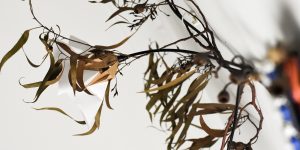
Beside the Nibelungen bridge & Oribokit: Gardening for Robots
Studio Matthew Gardiner (AU)
Wherever you are today and whenever you may have sat or stood somewhere, late late late at night, in Linz, this work is for you, this work invites you use our AR gadgets to place a Wurststand in your town, or place a Leberkässemmel on your plate at home. Share a post and write a short memory of a day (or night) at an Ars Electronica Festival.

Magic Darts or, when every throw is a perfect hit
Andreas Stelzer (AT), Rudolf Scheidl (AT)
Darts is a popular game, but difficult to master. In this version of darts, players always hit the bullseye. What looks like witchcraft is revealed as a mechatronic system, with a novel microwave sensor network and ultrafast hydraulic actors interacting. Such technologies will affect our future daily life, e.g. in self driving cars, with microwaves allowin us to see in the dark, with fog or dust; or in exoskeletons, where hydraulic actuation enables ultimate compactness.
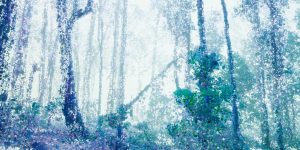
Past and Future Utopia
Melbourne School of Design (MSD), The University of Melbourne (AU)
Set on the indigenous land of the Dja Dja Wurrung, in rural Victoria, Australia, we present two projects that explore how we can reimagine and rethink a rural site, its past and its future. These intertwined projects create a relationship to Country and dive into the complexity of histories and stories, told from a pre-settlement, a colonial, and a utopian post-colonial perspective.


